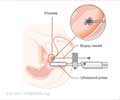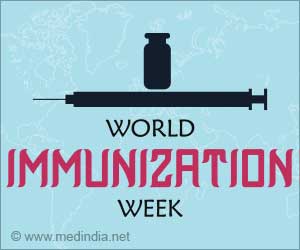Highlights:
- Excess body weight may increase the chances of developing advanced prostate cancer
- Maintaining a healthy body weight by following a healthy diet and regular exercise can lower the risk of advanced prostate cancer
Obese and overweight people are more likely to develop advanced prostate cancer, reveals a new study.//
A new study links
being overweight in middle age and later adulthood to a greater risk of advanced prostate cancer. Jeanine Genkinger, PhD, an epidemiologist at Columbia University Mailman School of Public Health, and colleagues published the study in
Annals of Oncology, the journal of the European Society for Medical Oncology and Japanese Society of Medical Oncology.
‘Watch Out: Obese and overweight people are at a higher risk of developing advanced prostate cancer. Hence, maintaining a healthy weight can cut down the risk of advanced prostate cancer.’
Read More.. is the second most common cause of cancer in men in the United States. Fewer than one in three men with advanced prostate cancer live five years beyond diagnosis.
Before this study, only a few studies examined contributing factors to advanced prostate cancer. There was an especially noticeable lack of research on the linkage between factors like weight in early adulthood, changes in weight during adulthood, and waist circumference, specifically with advanced prostate cancer risk.
Details of the Study
Using data from 15 large studies combined together, Genkinger examined associations between body fat, height, and prostate cancer risk in 830,772 men, 51,734 of whom had been diagnosed with prostate cancer. Her study took a life-course-based approach, examining survey data collected across respondents' lifespans to determine whether and at what age during adulthood excess body fat increased risk for advanced prostate cancer.
Findings of the StudyAdvertisement
The research team found that a BMI elevated above a healthy weight during middle to late adulthood--median age range from 50 to 64--was linked to the greatest risk for developing advanced prostate cancer. A "healthy" weight is defined as a BMI between 21 and 25 kg/m2.
They also found that greater waist circumference was linked with increased risk of advanced prostate cancer and death. Although other studies have linked higher BMI with increased prostate cancer, this is the first study to find a positive association with waist circumference.
Advertisement
"These study results show that risk for advanced prostate cancer can be decreased by maintaining a 'healthy' weight, which is in line with guidelines by the American Cancer Society and World Cancer Research Fund. Adopting healthy eating and exercising are factors that can help maintain a healthy weight," says Genkinger, associate professor of epidemiology at Columbia Mailman School.
"This study shows that adopting and maintaining healthy weight in middle to late adulthood can especially reduce risk of advanced prostate cancer."
Reference:
- Measures of body fatness and height in early and mid-to-late adulthood and prostate cancer: risk and mortality in The Pooling Project of Prospective Studies of Diet and Cancer - (https://www.annalsofoncology.org/article/S0923-7534(19)35413-4/fulltext)
Source-Eurekalert















